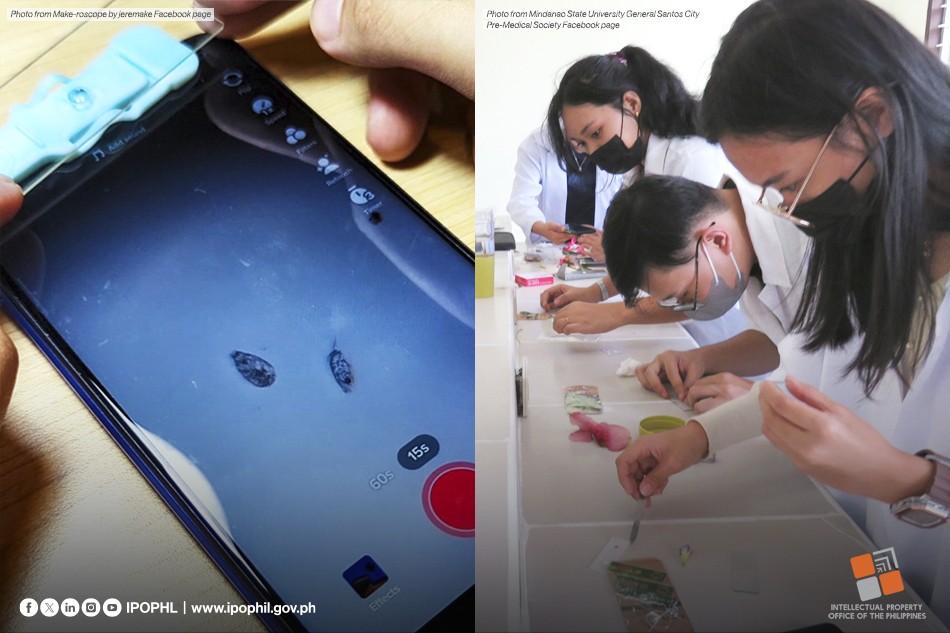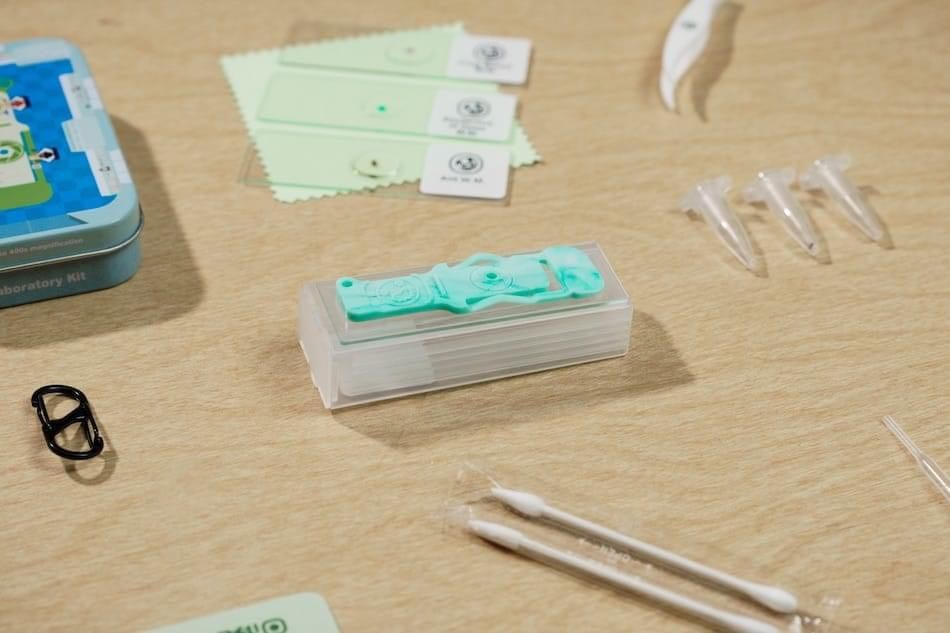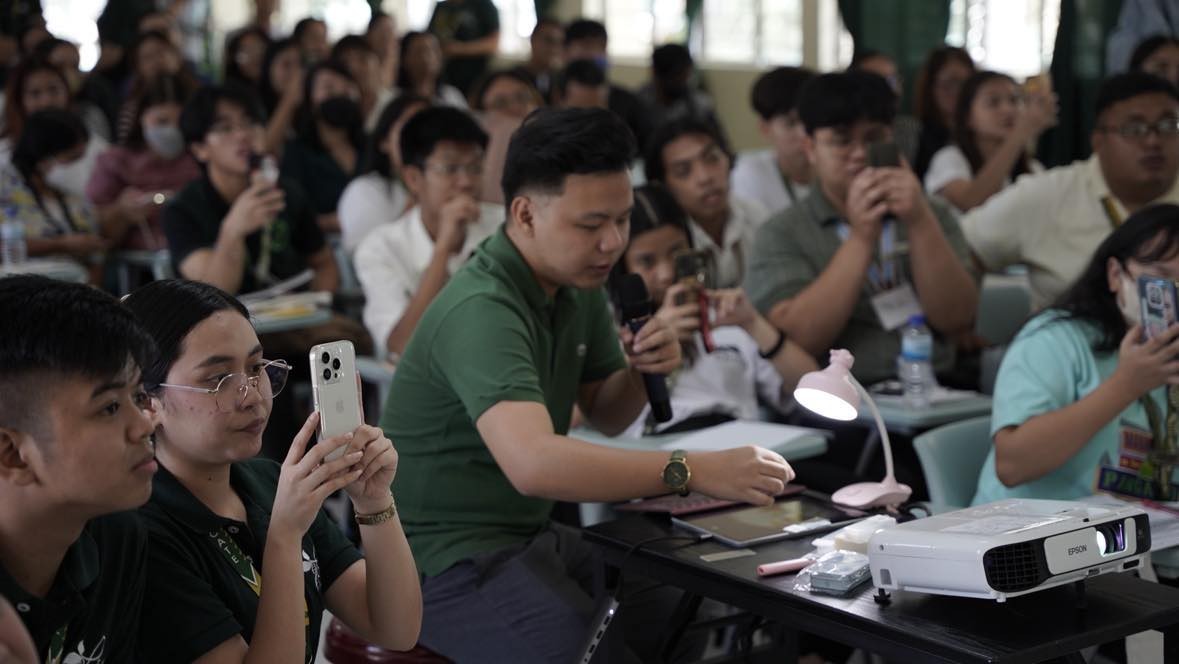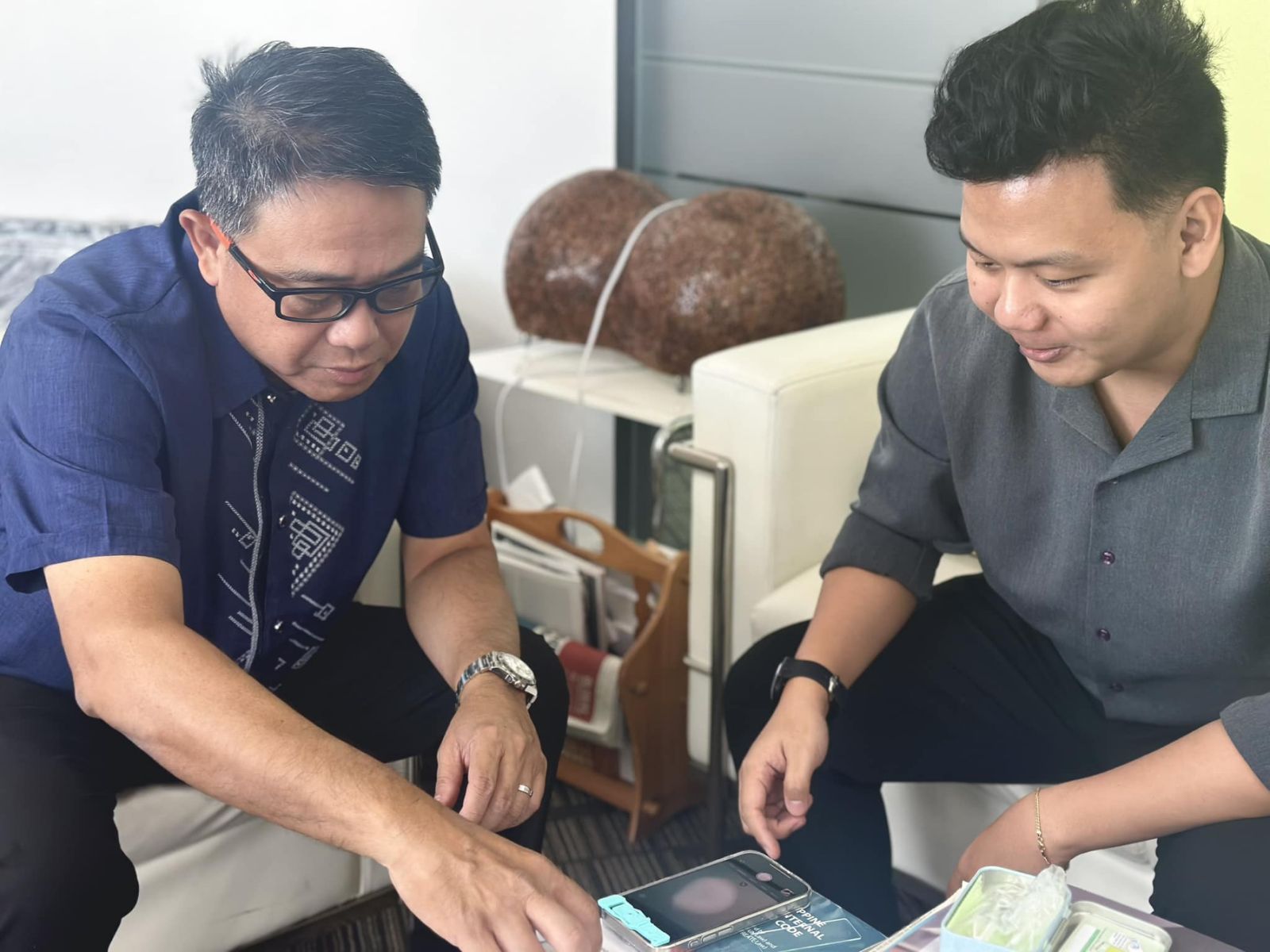
The Make-roscope’s keychain solution to big STEM education problems
WAGI SA PINOY IP FEATURE SERIES
April 11, 2024 | by Hannah Dione Lucero
For many school science laboratories in the Philippines, students are divided into groups to share a single microscope. This was a reality that even inventor Jeremy De Leon had to face in high school. “‘Diba, sa isang microscope, sampung tao ang gagamit? Pila-pila pa. Since then, I wondered if there would come a solution that would allow more learning freedom,” De Leon said during an interview with the Intellectual Property Office of the Philippines (IPOPHL).
This left students little time to finish a laboratory task, let alone give De Leon the opportunity to feed his burning curiosities of what a whole plethora of specimens — like ketchup, branches and stones — would look like in the microscopic universe.
But to several other school children, full access to microscopes would not even be possible. According to a report by the Department of Science and Technology-Philippine Council for Industry, Energy and Emerging Technology Research and Development (DOST-PCIEERD), out of 13,000 high schools across the Philippines, more than 4,500 have no access to a science laboratory.
Microscopic beginnings
Jeremy De Leon’s affinity with invention started during his college journey at Mapúa University where he applied his aptitude for innovating in both his Manufacturing Engineering classes and his extracurricular as a member of the campus theater group.
“This is where I discovered how to make things visually appreciated through science and technology,” De Leon said during an interview. De Leon lamented how working on theater sets would challenge him to simplify elaborate sceneries using his engineering skills.
This sparked De Leon’s interest in showcasing solutions to real-world problems through science and design competitions. In a TikTok challenge facilitated by the DOST-PCIEERD, he submitted an early concept of a DIY microscope using household items and a smartphone, for which he won first and fourth place.
Born at a time of need
In 2021, De Leon introduced the Make-roscope as the first keychain microscope. His invention is made of a silicone strip encasing a microscope lens that is placed on top of the front-facing camera of any smartphone or tablet. With a magnification of up to 400x using digital zooming, it can enlarge wet and dry specimens by resting a regular glass slide on the Make-roscope.

Contents of the Make-roscope kit. Photo courtesy of Jeremy De Leon.
The Make-roscope comes in a tin box so small it can fit into the palm of a kindergarten student. The entire box, costing only P549, consists of microscope slides, pipettes, a keychain, cleaning materials, a child-friendly user manual and the microscope strip — in sum, everything you need to jumpstart your microscope experiments.
Born at a time when distance learning has impeded students from accessing functional laboratory equipment, the Make-roscope was envisioned by De Leon to ensure that each student gets their very own microscope. Known for its portability, cost-effectiveness and even safety for children as its silicone is food-grade, the Make-roscope offers a hands-on learning opportunity within and beyond the classroom, despite the pandemic’s constraints.

De Leon showcasing the Make-roscope to partner school Cavite State University. Photo courtesy of Jeremy De Leon.
To date, around 3,000 units of the Make-roscope have been donated to schools, with 1,000 through the Make-roscope Initiative 2022 and 2,000 through partner organizations. According to De Leon, the beneficiaries have expressed its overwhelming impact on STEM learning by “empowering students to conduct experiments independently and nurturing their scientific curiosity.”
Meanwhile, teachers from De Leon’s partner schools have effectively integrated the Make-roscope in interactive learning which has fostered the students’ deep curiosity in the microscopic imaging of the possible specimens in their environment.
Now with over 8,000 units distributed through an estimated 25 partner organizations — of which 3,000 pieces were funded by the DOST’s Technology Application and Promotion Institute (TAPI) — De Leon sought to protect the work that had enabled him to advocate for enhanced learning among young Filipinos.
“With a growng appreciation for the Make-roscope, I wanted to be able to protect its uniqueness in the long run. The goal is to provide a Make-roscope to every Filipino student. To be able to, I thought about ways to be the only provider of this solution,” De Leon said.
Magnifying possibilities through IP
Now the founder and CEO of Jeremake, his company has joined the Ateneo Blue Nest incubation program as it looks for more ways to create a larger impact toward quality education.
With the help of the Ateneo Intellectual Property Office (AIPO), a recognized Innovation and Technology Support Office (ITSO) of IPOPHL, De Leon registered the Make-roscope and Jeremake’s trademarks (TM Nos. 4/2023/00527432 and 4/2023/00527430) and industrial designs (ID Nos. 3-2021 050692 and 3-2022 050721). Meanwhile, the patent for Make-roscope is currently pending.
“I found that there are several other products that offer the same solutions. With the help of IPOPHL and AIPO, I understood that registering my IPs keeps my unique value proposition intact,” De Leon said.

De Leon performing a demo of the Make-roscope with IPOPHL Director General Rowel S. Barba.
Registering the Make-rocope with IPOPHL was at the forefront of Jeremake’s business approach. De sLeon noted that he wanted to prepare for necessary IP enforcement, especially when the products have expanded to e-commerce sites and major physical stores where counterfeiting attacks commonly target trending and fast-growing products.
“For young inventors, I highly encourage them to make use of the incentives available to them. IPOPHL’s Youth IP Incentive (YIPI) program is a great way to start,” De Leon said, noting IPOPHL’s YIPI program that waives registration fees for youth inventors and entrepreneurs ages 23 and below.
In its first three years of operations, the ingenuity of De Leon’s IP gained him various recognitions for his contributions to STEM. In 2022, IPOPHL and the Philippines Chamber of Commerce and Industry (PCCI) awarded the Make-roscope as its grand winner at the Alfredo M. Yao IP Awards. The following year, De Leon garnered the prestigious 2023 James Dyson National Winner Award. Now, De Leon is a fellow for the Royal Academy of Engineering’s Leaders of Innovation Fellowship (LIF) who will be joining an upcoming residential mission in the UK this coming July.




